 Petzlover
Petzlover Ratonero Bodeguero Andaluz is originated from Spain but Sindh Mastiff is originated from India. Ratonero Bodeguero Andaluz may grow 41 cm / 16 inches shorter than Sindh Mastiff. Ratonero Bodeguero Andaluz may weigh 59 kg / 130 pounds lesser than Sindh Mastiff. Ratonero Bodeguero Andaluz may live 6 years more than Sindh Mastiff. Ratonero Bodeguero Andaluz may have less litter size than Sindh Mastiff. Both Ratonero Bodeguero Andaluz and Sindh Mastiff requires Low Maintenance.
Ratonero Bodeguero Andaluz is originated from Spain but Sindh Mastiff is originated from India. Ratonero Bodeguero Andaluz may grow 41 cm / 16 inches shorter than Sindh Mastiff. Ratonero Bodeguero Andaluz may weigh 59 kg / 130 pounds lesser than Sindh Mastiff. Ratonero Bodeguero Andaluz may live 6 years more than Sindh Mastiff. Ratonero Bodeguero Andaluz may have less litter size than Sindh Mastiff. Both Ratonero Bodeguero Andaluz and Sindh Mastiff requires Low Maintenance.
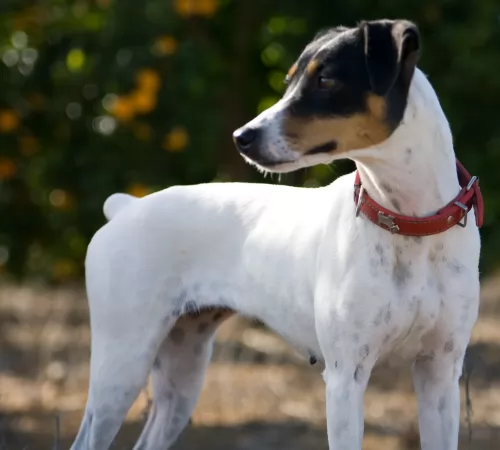 Long ago the English visited Spain to sample their wines, bringing with them smooth coated English Fox Terriers which were later crossed with other dog breeds of the area.
Long ago the English visited Spain to sample their wines, bringing with them smooth coated English Fox Terriers which were later crossed with other dog breeds of the area.
It is believed that the Andalusia Ratter’s ancestors were smooth coated fox terriers. The Club Nacional del Perro Andaluz Ratonero Bodeguero was established and in 1993 a standard for the breed was set.
It is only fairly recently that the breed was recognized by the Royal Canine Society of Spain but it isn’t recognized by any of the major kennel clubs.
 The Sindh Mastiff or Alangu Mastiff is an ancient breed believed to have been useful for guarding war camps, but today he is both a guard dog and pet.
The Sindh Mastiff or Alangu Mastiff is an ancient breed believed to have been useful for guarding war camps, but today he is both a guard dog and pet.
There isn’t too much information available to us about the origins of this dog but it is thought that they came about from breeding the Indian Mastiff and the Alaunt.
He is likened to the Bully Kutta dog, a huge Mastiff breed from Pakistan. This dog is one of three mastiff type dog breeds to be found around Persia and India. Unfortunately because of its aggressive nature, it has been used for dog fighting.
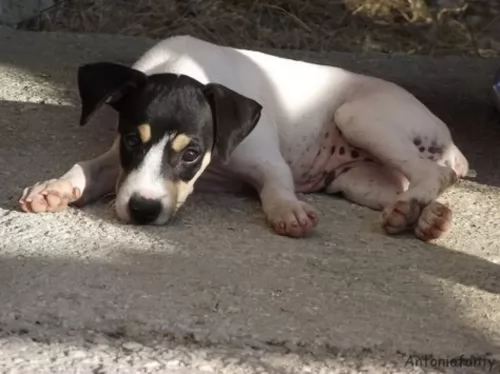 Also known as the Spanish Jack Russell, the Ratonero Bodeguero Andaluz looks very similar to this popular Jack Russell Terrier.
Also known as the Spanish Jack Russell, the Ratonero Bodeguero Andaluz looks very similar to this popular Jack Russell Terrier.
He is a small to medium sized dog with a lean, muscular body. The Ratonero developed in the south of Spain and is thought to be a mix of local ratting dogs and Fox Terriers. This ensured a quick, agile hunter.
The dog stands at between 35 – 43cm in height and weighs 6 - 9kg. The dog’s head is fairly small with dark brown eyes and half erect-half floppy ears. The coat is mainly white with some freckling. It is short and smooth with shades of black and tan covering the facial area. Some of these dogs are born with a natural bob-tail.
These dogs are known to have robust, hearty, happy personalities, full of the joys of living. They get on well with children as well as other pets if they have grown up with them.
Introductions should be slow if one of these dogs are brought into a home where there are already other pets. He is a very active breed and will be requiring plenty of mental stimulation and physical exercise.
They can provide quite a bit of entertainment for their human families as they can become quite clownish. They’re the kind of dogs that can adapt to life in the countryside or the city.
 The Alangu Mastiff is a huge dog, standing anything from 80 – 84cm in height and weighing 62 – 68kg. He is muscular and strong. He has a broad skull with small pricked ears, wide apart eyes and a thick neck.
The Alangu Mastiff is a huge dog, standing anything from 80 – 84cm in height and weighing 62 – 68kg. He is muscular and strong. He has a broad skull with small pricked ears, wide apart eyes and a thick neck.
The legs are powerful and muscled, the skin fairly loose over the body with hair that is short ad dense. The coat can be white, tan, fawn or brindle.
Sometimes the dog has a black mask. The tail is thick and long these days, although it used to be docked.
This dog has a domineering, ferocious nature and that is why it has been sought after as a guard dog. He is territorial and thought to be aggressive. He is therefore not a good choice of dog for first time dog owners. He is also not a good choice for when there are children in the home or even small pets.
He is strong willed and fairly difficult to train. Of course it is a known fact that a puppy turns out a lot like its owners. Good owners produce a good tempered dog, but you have to be careful with this dog as it has aggressive tendencies.
Certainly it will require a strong, firm consistent owner, and then the dog is capable of becoming loyal and devoted. Training and socialization are possible as he is intelligent, and it does help to make him more submissive to his human owners.
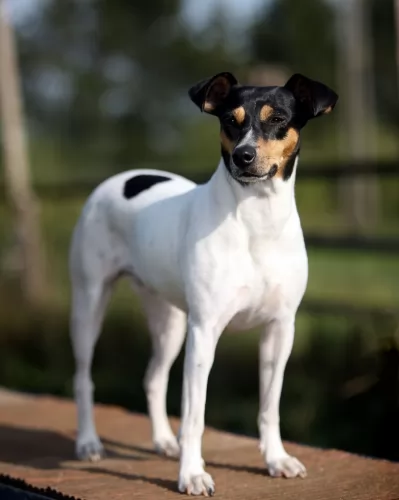 Your Ratonero Bodeguero Andaluz to this day is a ratter, always alert and ready to spring on prey. He is always lively and friendly, and with his loving nature, makes a splendid companion for his human family.
Your Ratonero Bodeguero Andaluz to this day is a ratter, always alert and ready to spring on prey. He is always lively and friendly, and with his loving nature, makes a splendid companion for his human family.
He is also a stubborn dog, liking to go his own way, and therefore will require training and socialization. He is an adaptable little dog too and when you bring him into your home he is willing to adapt to your way of life and become a loyal and loving member of your family.
 Domineering and quite aggressive, particularly if brought up that way, the Sindh Mastiff has a fairly long history of dog fighting. He is an intelligent dog and should be trained and socialized. He is also very territorial. He isn’t suitable for first time dog owners as he does have a bit of a reputation as being a fairly ferocious dog.
Domineering and quite aggressive, particularly if brought up that way, the Sindh Mastiff has a fairly long history of dog fighting. He is an intelligent dog and should be trained and socialized. He is also very territorial. He isn’t suitable for first time dog owners as he does have a bit of a reputation as being a fairly ferocious dog.
However, you have to give this dog some credit, and with the right upbringing, proper training and socialization, he can make a loyal pet and companion for a strong, firm, patient, kind and consistent type of owner.
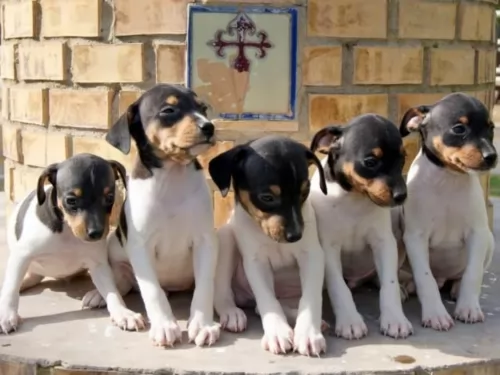 With good care, your Andalusian Ratter isn’t likely to get sick, but still, you would be better off knowing about some of the common dog diseases your pet could get.
With good care, your Andalusian Ratter isn’t likely to get sick, but still, you would be better off knowing about some of the common dog diseases your pet could get.
This is usually seen in young dogs where there is lameness in the hind legs and hip pain. It is believed that Legge Perthe’s occurs because of a genetic predisposition, and when it develops, there is sadly no cure.
Skin infections may seem fairly mild but nothing can be further from the truth. They can be painful and frustrating. Skin redness, dryness, itchiness and pain can cause your pet to lick and bite and make the situation worse. If your pet is being driven crazy by a skin irritation, get him to the vet who will do a complete physical examination.
Other diseases to be aware of include hip dysplasia, obesity, epilepsy and bloat.
 The Sindh Mastiff is a healthy breed of dog who could develop any one of the main dog illnesses there are, although it is highly unlikely to get the diseases.
The Sindh Mastiff is a healthy breed of dog who could develop any one of the main dog illnesses there are, although it is highly unlikely to get the diseases.
A common problem with dogs is canine cancer, of which lymphosarcoma and bone cancer are common. Then you have to be aware of bloat or gastric dilatation volvulus, which is particular common in deep-chested dogs. The stomach dilates and twists, and blood supply is cut off.
This is a life threatening illness. Urinary tract infections and skin conditions are just some of the diseases your pet will need to contend with.
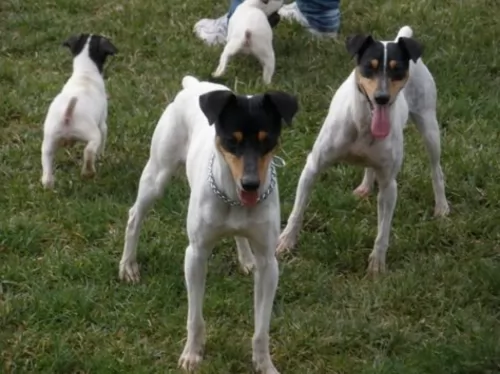 This is a fairly low maintenance dog as the short smooth coat will be easy to brush twice a week.
This is a fairly low maintenance dog as the short smooth coat will be easy to brush twice a week.
Check him over for unusual lumps, trim his nails and check inside his ears, look into his eyes to ensure they are bright and alert and look inside his mouth to make sure he doesn’t have any rotten teeth.
Have your pet neutered or spayed if you want to avoid puppies. This can be beneficial for your pet’s health too.
Feed your Ratonero Bodeguero Andaluz only the best food there is. If you opt for commercially manufactured food, make sure its full of vitamins and minerals. Your little pet will want consistency and simplicity with his food to avoid digestive problems.
Try and provide him with some home-made food which can be added to the dry kibble twice a week as a treat. Boiled chicken, brown rice or pasta and spinach, sweet potatoes and carrots all chopped up ad mixed into the dry kibble will ensure your pet’s health.
Some raw meat added in occasionally will also go towards ensuring his good health.
Always make sure he has access to fresh, cool water.
Provide him with a safe, dry, warm, comfortable place to sleep.
Get him to the vet when you see he is sick.
Ensure he has sun and shade in the garden.
Never ever leave him in a hot car.
 This is a low maintenance dog as the short coat will only require a brush twice a week. As you brush him take note of any unusual lumps you come across.
This is a low maintenance dog as the short coat will only require a brush twice a week. As you brush him take note of any unusual lumps you come across.
Also, while grooming him, check the inside of his ears and look for signs of redness and the possibility of an ear infection. Look into his eyes and make sure they are clear and bright.
Check inside his mouth, if he will allow you to, and make sure he doesn’t have any bad teeth. These could cause a lot of pain and also cause problems with body organs such as the heart and the kidneys.
This is a big dog that is going to need plenty of exercise. He is not suited to small spaces in the city but will require a fairly large property in the suburbs or the countryside. He will become frustrated and more dangerous to others if left day after day without exercise.
The Sindh Mastiff is an energetic dog, so it is important do ensure he has good food to eat to ensure he remains fit and energetic. For convenience, commercially manufactured dog foods can be a good choice, but only when you choose the better quality ones with vitamins and minerals in them.
Some of the inferior food brands load the food with bad fillers, colorants and preservatives and these can all make your pet sick. Try and give him some home made food too – nothing exotic – just plain boiled chicken, brown rice or pasta and spinach, sweet potatoes and carrots.
Your dog will thank you for such a plain diet as then he isn’t plagued by digestive problems. Chop it all up and add it into the dry kibble a couple of times a week. Try and include some raw meat into the diet occasionally to avoid skin problems. Always ensure a constant supply of fresh, cool water.